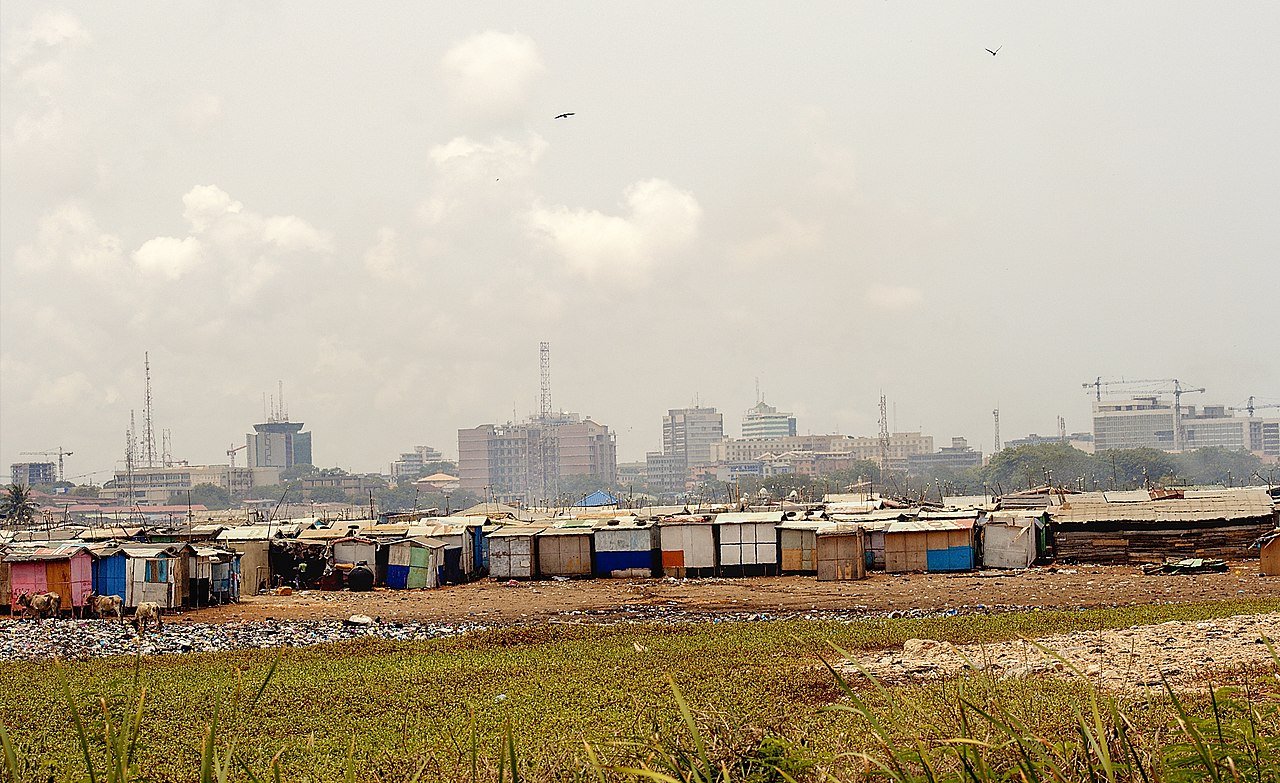AN URBANISM
THAT ENABLES
Designing a Supply Chain for Living + Work + Play
Sustainability & Circularity
To counteract the investment and finance challenges and to leverage circular economic opportunity, the proposed development model seeks a usage rate of 65% and higher of repurposed materials. This goal effectively and strategically reduces material and construction costs, while playing an important role in international material waste reduction and critical material repurposing, thereby reducing overall environmental impact.
This strategy aligns with and enhances Accra and Impact Hub’s goal of housing 100,000 young people in quality housing across the capital city within 15 years.
An Equitable, Sustainable & Scalable Future
-
Following extensive research, it was concluded that a sustainable development plan centered on housing could be achieved through strategic product and material reuse and repurposing. The global shipping container is that strategic product. It is employed by the shipping industry as the primary means to move global products and supply. The ubiquitous shipping container is a marvel of industrial design, namely for its utility, strength and serviceability. In Accra, its future reuse and repurposing for communal development is both ecologically and financially sound.
-
The high performing characteristics of shipping containers have been identified worldwide for their inherent capacity to be repurposed for occupational programs such as storage, commercial space and housing. Due to their configurability and low-cost conversions, shipping containers transformed into housing and commercial uses have begun to appear internationally in various forms and scales throughout Europe and Asia. Their use and formal arrangements have only increased in sophistication and introduced a new aesthetic value across a range of cultures with products ranging from hotels, shopping malls and housing.
-
Global estimates place decommissioned and depreciated shipping container counts at over 200,000 annually. The adaptive reuse extends the life cycle of a container as well as the embodied energy that goes into their material and production. Capturing and extending the life cycle is an environmentally responsible and economically sound operation, reducing the linear life cycle of new material production, use and finally waste. Additionally, extended life cycle use multiplies sustainability measures through resource reduction and new production energy demands.
-
Spatially, shipping containers both modified and unmodified meet international dimensional building guidelines for habitable space. Material enhancements and modifications governed by region, and spatial program facilitates a regional specificity added to their design and ultimate usability. The well-established techniques of structural modifications, and performance enhancements are managed as part of an on-site assembly process. The process is typically performed by moderately skilled labor, using locally available materials required materials, further curtailing costs.
Invest in People
Housing Enables
Investing in people begins with the provision of a home, which enables all else. Therefore the Entrust to Enable concept is truly a housing based mixed-use development model intended to enhance the existing ecosystem of the community and founded on the following:
Low cost and environmentally conscious reuse of abundant global decommissioned shipping containers
Creation of a local shipping container repurposing and fabrication industry in collaboration with Accra’s construction trade and the Design and Technology Institute
Creation of a unique, affordable and sustainable mass housing market product
Creation of a unique, affordable and sustainable commercial space market product
Invest in Social Infrastructure
Market Solutions
Housing as a national investment strategy
Address an affordable housing product shortage. Ghana’s housing deficit hit 1.8 million units in 2022 and by this, over 16,500 houses will have to be built every month for the next ten years to resolve the shortage. The average cost of a house in Accra is GH₵315,000 and rising. Over 9 million people do not earn up to GH₵2000 per year. A staggering number of over 8 million Ghanaians — about twice the population of Accra — are homeless!
Address a housing affordability crisis, related to a lack of established and accessible personal banking, credit and mortgage market by offering a new development model with lower associated cost.
Address the citywide unplanned communities, resulting in congested and poor living conditions, without basic infrastructures such as water, waste and power.
Invest in Local Development through Industry Generation
Local Industry Generation
Innovative repurposed use of shipping containers significantly reduces construction cost and construction time, thereby reducing investment financing and repayment periods overall. Secondarily, the creation of a local modification and construction industry eliminates costly imports of construction materials and specialized labor. These key factors greatly increasing the value to cost ratio, while stimulating the local economy through job creation and sustainable construction market growth.



